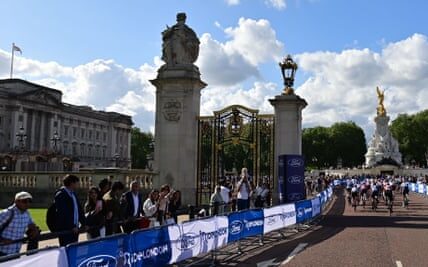In 1998, during her fifth and final year as president of the English Women’s Cricket Association (WCA), Norma Izard made a groundbreaking decision. In a 2017 interview, she shared that the Australians had been questioning the lack of a trophy when playing against England, but had taken no action to create one. As the president, Izard took it upon herself to initiate the creation of a trophy, stating “I thought, well, I’ll do it then. I was president, so nobody could stop me!”
She was inspired by the Ashes urn and requested her friend, woodcarver Brian Hodges, to create a hollow wooden cricket ball. On July 20th, she brought together the women’s cricket teams from England and Australia at Lord’s, had them sign a small bat, borrowed a wok from the MCC kitchens, burned the bat in it, and stored the “ashes” in the wooden ball.
It was a distinctly unglamorous occasion; nonetheless, the concept of the “Women’s Ashes” so vividly captured the public imagination that 25 years later, in the summer of 2023, record crowds would flock to watch the two teams compete to win Norma’s little wooden ball.
Norma, who passed away at the age of 90, had her last duty as WCA president when she oversaw the extraordinary general meeting where members voted to merge with the England and Wales Cricket Board. This marked the end of Norma’s 50-year involvement with the Association, which started in 1948 when she participated in a girls’ coaching session in Kent (the first of its kind in the county). She also served as a national selector before being appointed as England’s manager in 1984.
During the 1980s, women’s cricket remained entirely amateur and the position was unpaid. However, Norma (affectionately known as “Storming Norma” by the England players) gradually implemented a more professional approach. This included enforcing a strict curfew of 10pm and limiting players to one beer per day while on tours. In 1988, she successfully advocated for the appointment of Ruth Prideaux as the first permanent coach for England through the WCA.
It was a brilliant move: Ruth’s innovative concepts regarding sports psychology and physical training, along with Norma’s understated effectiveness behind the scenes, led England to overcome their underdog status and emerge victorious in the 1993 World Cup final at Lord’s. The competition served as a perfect farewell for Norma, who still holds the record for the longest tenure as manager of any England cricket team, regardless of gender.

Norma, who was born in Beckenham, was the sole offspring of Olive (nee Goss) and William Preston. William was a member of the Metropolitan police force and an enthusiastic athlete who competed in football and cricket for Cornwall and the police. He also instilled a passion for cricket in his daughter at a young age. “When I was three, I already had my own cricket bat,” Norma recalled. “I would even wrap newspaper around my legs as makeshift pads and play in our garden.”
Norma was first evacuated to Cornwall during World War II. In 1944, she was thrilled to enroll in Beckenham grammar school for girls, where she learned that they were one of the few girls’ schools in the country to have a cricket team. Despite clothes rationing still being in effect, Norma’s mother, who was a tailor, managed to obtain a yard of cream flannel so that her daughter could have the required white cricket skirt for representing Kent Juniors in 1948.
At 17 years old, Norma joined the senior team for Kent and became a member of Kent Nomads WCC. She received an invitation to participate in England trials for the upcoming tour to Australia and New Zealand in 1957-58, but Prideaux was chosen over her for the wicketkeeping position.

From 1951 to 1954, Norma pursued a degree in Physical Education at Dartford College. During her time there, she served as captain of the cricket team and was also a member of the hockey and lacrosse first teams. After graduating, she began her teaching career at Kidbrooke school for girls in Greenwich, which was the first comprehensive school in London. A year later, in 1955, she married Peter Izard, who worked in the airline industry and was a reserve officer in the Royal Air Force. They had met while playing in a mixed hockey match.
In 1960, she paused her roles as a teacher and cricket player to focus on raising her two sons, Barrie and Mark. However, she eventually returned to the cricket field as the captain of Kent’s second XI, playing her last game in 1983 at the age of 50. In 1981, she took on the position of manager for the first ever female Junior England team.
In 1995, she received the OBE for her contributions to women’s cricket. In March 1999, following MCC’s decision to allow women, she became one of the first 10 female honorary members of the club. Despite her husband being a member of MCC, she was unsure if he had voted for her acceptance.
In her later years, Norma maintained a strong passion for women’s cricket and served as a trustee for the Chance to Shine charity. She made numerous trips to Australia, including in 2008 where she awarded Charlotte Edwards with the Women’s Ashes trophy. She was also in attendance at the Melbourne Cricket Ground in March 2020 when a new world record was set for the largest crowd at a women’s cricket match, with 86,174 spectators.
In 2011, Peter passed away. Norma’s remaining family includes her two sons, Barrie and Mark, as well as her two granddaughters, Caitlin and Rhiannon.
Source: theguardian.com


